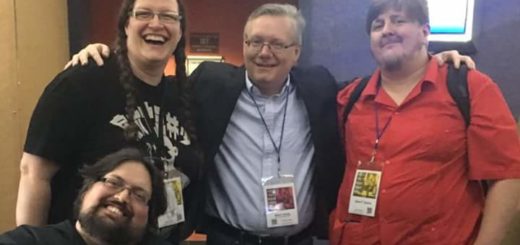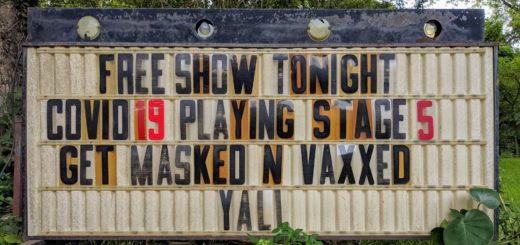Reruns: LT. THEO KOJAK
This is part of the reruns series of guest posts by guest writer Jason Sparks
LT. THEO KOJAK
Telly Savalas, “Kojak”, CBS, 1973-78; ABC, 1989
IF YOU WORKED IN THE 11TH PRECINCT, MANHATTAN SOUTH, YOU eventually noticed it—but you never mentioned it. Maybe you saw his time card, maybe you were transcribing his reports, maybe you signed for a letter to him, but you eventually saw the glaring omission: the man’s legal name was Theodore Kojak, Junior. He never called himself Junior, never mentioned it at all, and if you mentioned it to him, you would get a tirade that began “heyyyy, what’s in a name, baby?’’—and went downhill from there. Grown men cried. But they never called him Junior again.
There was, indeed, a Theodore Kojak, Senior, and his was a name well known to Manhattanites of a certain age and income bracket. He was the man behind Kojak’s Empire Furs, a high-end furrier with an appointment-only boutique on the 12th floor of the Empire State Building. Kojak furs were bought by names—Astors, Vanderbilts, A-list celebrities. Old man Kojak was a big shot, no two ways about it, and he had a big heart; over the years, he’d employed virtually every Greek who came to NYC. Pete Botsaris, who ran the Olympia restaurant and was imitated by his nephew on TV, had driven a truck for him for a while.
There was one Greek, however, that he never saw fit to hire—his own son. Not that Junior ever wanted for anything; although he was born in 1929, the year a lot of people lost the ability to buy furs, dad was able to sell throughout the Depression, up through the war. Thus was Senior able to send Junior to New School for Social Research, from which he graduated with a degree in, of all things, Journalism, in 1951. Junior found work quickly, writing crime beat stories for print and radio ; his mind was quick, his wit was quicker, and he made close friendships at every precinct and courtroom. Somewhere in the vaults at WNEW, there’s a wire recording of his interview with the Rosenbergs, the only one granted.
But then came ’56, and the in-house ad man for Kojak Empire Furs retired; surely, Junior reasoned, the old man would hire his own son, the professional writer. He didn’t, opting instead for some SOB named Draper. Some kid out of nowhere, and he wasn’t even Greek? Fine. If he wasn’t up to snuff for the Kojak Empire name, he’d forge his own path. Thankfully, he had two older mentors who encouraged him to do just that—Ralph and Ed, who lived on the floors above him in his apartment in Bensonhurst.
So your old man sells furs, and he don’t want youse sellin wid’ ‘im? His loss, Teddy boy ,” Ed told him one night over a game of pool. As usual, Ralph chimed in quickly. “Look, pal, I hear yer stories on the radio, I been readin’ ‘em in the paper…this thing with yer old man, yer cryin’ over spilt milk! You don’t gotta write commercials for fur coats! Who cares about fur coats? Ya think me n’ Ed ever bought fur coats for Alice & Trixie , or ever will? But crime, this is New York, it’s always gonna be there.
Kojak felt, in that moment, more warmth and camaraderie with these two working stiffs than he had ever felt at home. He stuck with the crime beat and never looked back.
He stuck with it, that is, until the very next year, when it fell to him to cover the Marcus-Nelson case. They were young girls, typists at the Sterling Cooper advertising agency, who were brutally murdered in their apartment; cops operating out of a mixture of laziness, apathy, and racism pinned it on James Evans, an African-American who had delivered a TV to the apartment next door earlier the same day. Kojak interviewed Evans, got into the apartment, talked to the arresting officers—and people who knew, really knew, the arresting officers. He’d seen enough and heard enough to know that this was too convenient, too neat a package; prior to delivering that TV set, Evans had never set foot in that building. Kojak pushed, continued to write about the case when the other crime reporters in the city had let it go. Elements within the NYPD pushed back; Kojak, and other elements within the NYPD, pushed harder. James Evans served less than a year; the real perpetrator, a vile little man named Sonny DePalma, who was in the building collecting gambling debts, lived out his life in Sing Sing. Theo Kojak became something of a folk hero—a folk hero being encouraged on all sides to try his hand at police work.
His performance at the Academy was the stuff of legend, and he spent less time walking a beat than any detective in the 11th Precinct’s history—he was frankly too good at detective work to waste on parking tickets and people spitting on the sidewalk. He was a Detective Sargent by 1964; by 1967, he was the loud, flamboyant workaholic known throughout the precinct, solving crimes in incredible 3-piece suits, leaning into his family’s trend towards hair loss by shaving his head and keeping it shaved, by habitually sucking on lollipops. You read that correctly…tough-as-nails alpha-male NYPD detective with a lollipop in his mouth. When asked about it, he gave a rote answer, typical of his sense of humor—“I’m trying to fix the generation gap!”
That answer was an outright lie. What no one ever knew was that, on the day young Theo came to his father’s business to ask about the ad copy position, he happened to have a lollipop in his mouth—the end-product of flirting with a cute bank teller during a previous errand. The WASP kid Draper happened to be there as well, as were the Sterlings, some of his old man’s best customers. Draper, his own mouth holding a Lucky Strike, saw the stick in Theo’s mouth—“Well! Looks like someone was a good boy!” Peals of laughter from the Sterlings. A death-scowl from the old man, who decided then and there that his own son would be an embarrassment.
Kojak Sr (the father was Teddy; the son, because the father was Teddy, was adamantly Theo) was showing an ermine to a client on an August day in 1966 when a massive heart attack killed him; although Teddy never understood Theo, Teddy was an old-worlder, and primogeniture (Theo’s siblings were all younger sisters) dictated that his policeman son would inherit the business. Theo liquidated the lot, using the tidy sum to buy his ostentatious suits, lollipops in bulk from a wholesaler, and to insulate himself from potential bribes.
His tenure with the NYPD would run just shy of 30 years, during which he solved robberies, murders, rapes, attempts to kill fellow officers. He had once written the crime beat; now the papers wrote about him, just as much as they did the US Marshal serving temporarily with an uptown precinct. Just as they would a generation later about detectives Munch, Goren, and Briscoe , each of whom served in the 11th precinct under Lt Kojak. What they all learned from him—what he wanted them to learn—was to be unafraid, brash, to embrace who they were and make the rest of the world deal with it, and why not? They were detectives. They were, in any situation, the good guys. They had to be accepted. Did Lt Kojak ever come to that conclusion himself? No one can really say. He was apparently still trying to prove something to—himself, his father, someone—when the never-married Kojak, at the age of 64, successfully lured a much younger girl, a masseuse named Phoebe, into bed with him in 1993. The next morning, she woke up, he didn’t. The city papers could have run one last story about the man who now (well, until now) ran the 11th; out of respect, they didn’t.






















